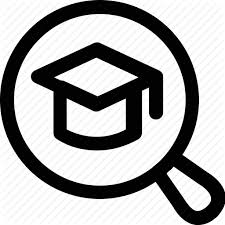Significant of Mathematics Laboratory Activities for Teaching and Learning
Abstract
The present study examined the significance of the Mathematics Laboratory for Mathematics teaching in Schools, Colleges & Teacher Training Institutes in India. Researchers present the overview of Math-Lab for effective mathematics teaching and discuss the important roles of the mathematics laboratory for mathematics learning. The mathematics laboratory classroom solves this problem by combining these environments. Laptop computers address the needs of software and networking but there are fewer pro levels that help maintain a more balanced classroom environment. In the teaching and learning of mathematics, the mathematics laboratory, with the support and companionship of both the student-teachers, can play a significant role and can have a significant impact on the progress of the students in mathematics. The main objective of the present study is to find out the major factors of Mathematics Laboratory in Mathematics-Education. This study discusses the concepts of mathematics in the classroom, the mathematics laboratory and its importance, and how to use the mathematics laboratory for trained teachers, from beginning to elementary level mathematics education. The methodology of the study is a mixed type involving an interpretative approach where qualitative data were collected and study secondary sources, like books, articles, journals, thesis, university news, expert opinion, and websites, etc. Finally, meaningful suggestions are offered.
References
Bartolini Bussi, M. G. & Mariotti, M. A. (2008). Semiotic mediation in the mathematics classroom: Artifacts and signs after a Vygotskian perspective. In L. English & al. (Eds.), Handbook of Int’l Research in Math. Educ., second edition (pp. 746-783). Routledge.
Martignone, F., Antonini, S. (2009). Exploring the mathematical machines for geometrical transformations: a cognitive analysis. In Tzekaki, M., Kaldrimidou, M., & Sakonidis, H. (Eds.), Proceedings 33th Conf. of the Int. Group for the Psychology of Mathematics Education. (Vol. 4, pp. 105-112). Thessaloniki, Greece: PME.
Kilpatrick, J. (2001). Understanding mathematical literacy: the contribution of research. Educational Studies in Mathematics, 47, 101-116.
KENT, P., RAMSDEN, P. and WOOD, J. (1994) Times Higher Educational Supplement (London), 13 May 1994, supplement on ‘Multimedia for teaching and learning’, pp. x–xi.
Okeke, R.J. (1995). Principles of development selection, utilization, evaluation storage and retrieval of instructional materials. In: Okwo, F.A., & Ike, G.A., (Eds.), Educational Technology: Basic Concepts of Issues. Nsukka: University Trust Publishers. pp. 45-76.
Ukeje BO (1986) Education for Social Reconstruction London, Macmillan.
Agwagah UNV (1997): Laboratory Approach to Mathematics I Inst- ruction: A Situation Report on Nigerian Secondary schools in The 1990s. J. Liberal Studies 5(2):116-124.
Igbokwe DI (2000): Dominant factors and Error Types inhibiting the understanding of Mathem-atics. 41st Annual Conference Proceedings of STAN, 242-249.
Das, K. (2019).Lack of mathematical knowledge in two-year B.Ed. programme: Indian Context. Research Journal of Educational Sciences. Vol. 7(3), 1-6, September (2019). ISSN 2321-0508.
Burton, L. (1994). Whose culture includes mathematics? In S. Lerman (Ed.), Cultural perspectives on the mathematics classroom (pp. 69–83). London, United Kingdom: Kluwer.
Das, K. PEDAGOGICAL APPROACHES IN MATHEMATICS: INDIAN PERSPECTIVES AND PRACTICES. International Journal of All Research Writings. Vol. 1 Issue. 3. September 2019. ISSN (O) - 2582-1008.
Das, K. et al. “Applications of Mathematical Knowledge in History, Geography, Fine-Arts & Physical Education Subjects in Two-Year B.Ed. Program: Indian Context.” Journal of Emerging Technology and Innovative Research, vol. 6, no. 6, 2019, pp. 8-15.
Walker, J. T. & Lofton S. P. (2003). Effect of Problem Based Learning Curriculum on Students’ Perceptions of Self directed Learning . Issues in Educational Research, 13, University of Mississipi Medical Centre.
Das, K. “Role of ICT for Better Mathematics Teaching.” Shanlax International Journal of Education, vol. 7, no. 4, 2019, pp. 19-28. DOI: https://doi.org/10.34293/education.v7i4.641
Chin, C. & Chia, L. G. (2004). Problem Based Learning using Students’ Questions to drive Knowledge Construction, Science Education, 88(5), 707-727.
Das, K and Chowdhury. R. “Analytical Study on Practice Teaching of B.Ed. Students in B.Ed. Department, Gobardanga Hindu College, under WBSU in India.” International Journal of Scientific Research and Reviews, vol. 8, no. 2, 2019, pp 3882-3898.

In submitting the manuscript to the International Journal on Integrated Education (IJIE), the authors certify that:
- They are authorized by their co-authors to enter into these arrangements.
- The work described has not been formally published before, except in the form of an abstract or as part of a published lecture, review, thesis, or overlay journal.
- That it is not under consideration for publication elsewhere,
- The publication has been approved by the author(s) and by responsible authorities – tacitly or explicitly – of the institutes where the work has been carried out.
- They secure the right to reproduce any material that has already been published or copyrighted elsewhere.
- They agree to the following license and copyright agreement.
License and Copyright Agreement
Authors who publish with International Journal on Integrated Education (IJIE) agree to the following terms:
Authors retain copyright and grant the International Journal on Integrated Education (IJIE) right of first publication with the work simultaneously licensed under Creative Commons Attribution License (CC BY 4.0) that allows others to share the work with an acknowledgment of the work's authorship and initial publication in this journal.





1.png)
